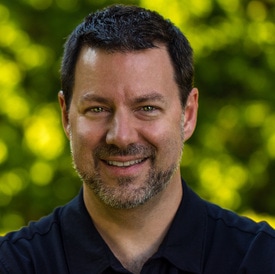
I aspire to gardening, but never seem to follow through. It really is a wonderful thing to do. As Frank says in the play, “it grounds me.” But you really need to be committed to it. The last two years we put in a vegetable garden. I even built a raised bed. We ended up with some decent tomatoes, a few cucumbers and maybe 2 yellow squash. Not a bumper crop, by any means. The mint thrived, however. Literally took over the whole garden. I think it’s still out there, growing, pushing up through the frost and the snow. The mint shall inherit the earth.
What would you do if you found out your neighbor had been using two feet of your property?
I would certainly take the land back. In the house we are in now the yard is the best part. And land is valuable. If I were in Tania and Pablo’s position, I would certainly try to take it back. I would try to be assertive, but do it in the right way so that animosity isn’t created. No one likes to be “at war” with their neighbors. Most of us have stories about interaction with our neighbors.It’s such a strange, forced relationship.
However, in our play, conflict is created due to the element of time. Tania and Pablo need the fence to go in right away, and want it to be in the proper place. Frank and Virginia want the new fence to stay in its original place, so that Frank can be judged in the garden competition. Everyone in the play mishandles things, tempers flare and chaos ensues.The thing is, everyone is right about what they want. So the playwright creates an unwinnable situation, forcing the characters to expose their flaws. This is her recipe for comedy.
What do you like most about directing comedies?
I love directing comedies because laughter is maybe the greatest thing a human can do. Being able to create theatre that makes a collective group laugh is a powerful feeling. I love being in the rehearsal room, trying things, failing. Then trying again and having the whole room laugh. It’s like a playground for adults.
But it is also extremely challenging. As a wise one once said, “Dying is easy, comedy is hard.” As a director of comedies you have to have instinct, inspiration, constant trial and error, but in the end live theatre is an unpredictable thing. What might get uproarious laughter one night might fall flat on another night. The idea is to try to make sure each comedic moment will work every time. Comedy is such a subjective thing. The hope is you are making it funny for everyone.
Are there specific challenges to directing a comedy versus a drama?
You need to prepare actors when you are directing comedies the same way you direct a drama. We need to have complete characters, strong intentions and actions. The story needs to be fully communicated and the play needs to be staged in an interesting way. But comedy is so much about pace. We are constantly working on the timing of things. This may be in a specific comedic bit, or it may be in the way a scene moves along to a comedic payoff. For instance, you could be setting up something for a laugh later in the scene or even the show. I suppose the biggest challenge is that in dramas you work on truth, but it can be meaningful to the audience in different ways. In comedies, it’s either funny or it’s not.
What do you like most about this play?
This play constantly surprises me with the issues it brings up.Racism, ageism, classism, ethnic identity, what it means to be an American.Weighty subjects for a comedy. But the playwright, Karen Zacarias, doesn’t really offend anyone, or bang us over the head with opinions. She lightly touches on the issues, surrounds them with laughter, and hopefully leaves the audience asking questions about themselves when they leave.
But ultimately I love this play because it is hysterical.There are so many drop dead funny lines.And there is such a farcical element to this show.I have pushed the actors to be as big and bold as they can in these moments. But also truthful.The only way farce works is through deep truth.It’s a fine line, and we are tiptoeing right along it.



